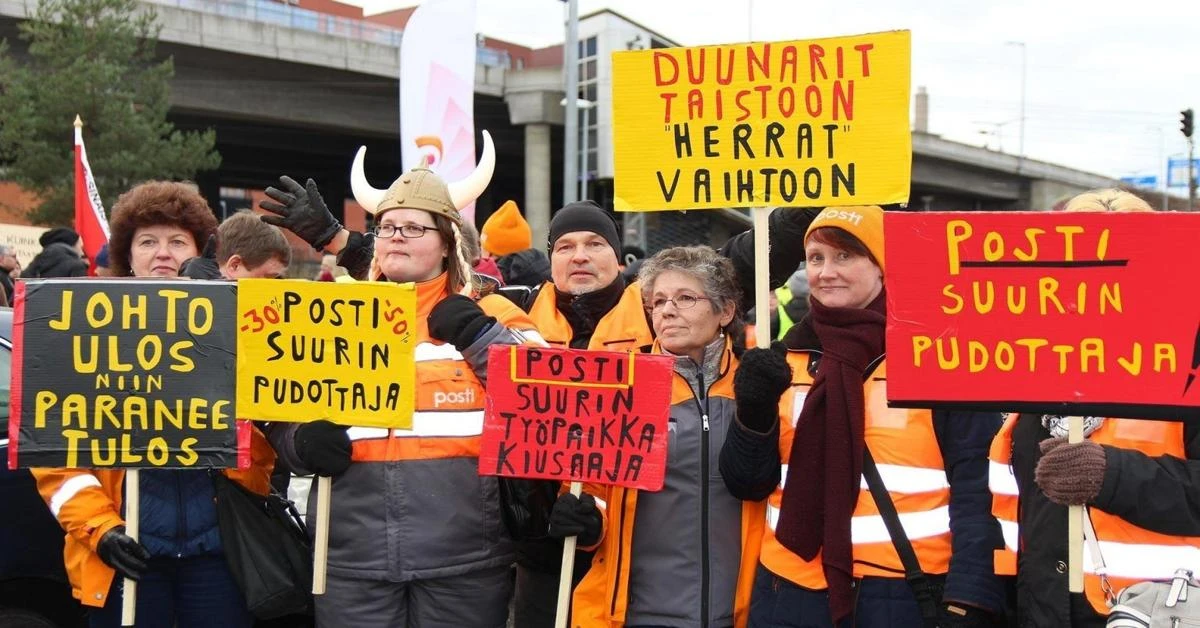Finnish workers protest labor changes, benefit cuts with walkouts

Finnish employees commence walkouts in opposition to labor changes and reductions in social benefits
Approximately 290,000 Finnish workers are set to initiate a two-day strike on Thursday to express their opposition to the right-wing government’s proposed labor market reforms and potential reductions in the social welfare system. This action is expected to significantly disrupt Finland’s air traffic, impact oil refinery production and lead to the closure of numerous businesses, factories, and childcare facilities.
Jarkko Eloranta, the president of Finland’s largest trade union association SAK, described the government’s plan as ruthless, emphasizing the severe restriction of the right to strike and the implementation of stringent budget cuts. The government’s inclination toward local work agreements over centralized negotiations, limitations on political strikes, and simplified termination of employment contracts has sparked protests from labor unions.
The unions have expressed readiness for a prolonged struggle, indicating their willingness to escalate strike actions if the government, which assumed power last year, does not yield. Despite opposition, the government asserts that enhancing productivity and reducing the fiscal deficit are essential for Finland’s economic well-being. The government and top industry lobby EK have condemned the strikes, emphasizing the necessity of these changes to align Finland’s economy with that of comparable countries like neighboring Sweden.
The striking workers represent approximately 13% of Finland’s employed population, as per official statistics from 2023. The strike’s impact is evident, with Finnair announcing the cancellation of around 550 flights and Neste’s Porvoo refinery projecting reduced petrol and diesel supply for roughly a week. Akava, the umbrella union for university-educated workers, has urged the government to uphold the Finnish tradition of negotiation.
Jyrki Kemppainen, the communications chief of Akava, highlighted that the government’s actions have prompted a reevaluation of the potential continuation and scope of trade union activities.
Source: Newsroom



